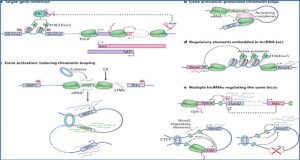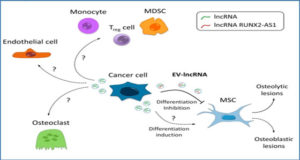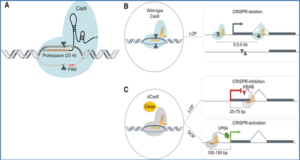Our current understanding of the molecular events that functionally characterize cellular biology continues to be revised. Recent observations find that the vast majority of the human genome is transcribed and may be functionally relevant. Many of these previously unrecognized transcripts, both short and long non-coding RNAs, have been found to be active modulators of protein coding gene function. While such observations were in the past relegated to imprinted genes, it is now becoming apparent that several different genes in differentiated cells may be under some form of non-coding RNA based regulatory control. Emerging evidence suggests that some of these long non-coding RNAs are functional in controlling gene transcription by the targeted recruitment of epigenetic silencing complexes to homology-containing loci in the genome. Most notably when these repressor non-coding RNAs are targeted using small RNA-based inhibitors (such as with RNA interference), a de-repression of the targeted gene can occur resulting in activation of gene expression. Knowledge of this emerging RNA based epigenetic regulatory network has implications not only in cellular evolution but also for the development of an entirely new area of pharmacology.
- Weinberg MS, Morris KV. (2013) Long non-coding RNA targeting and transcriptional de-repression. Nucleic Acid Ther 23(1), 9-14. [article]
 lncRNA Blog lncRNA Research and Industry News
lncRNA Blog lncRNA Research and Industry News







